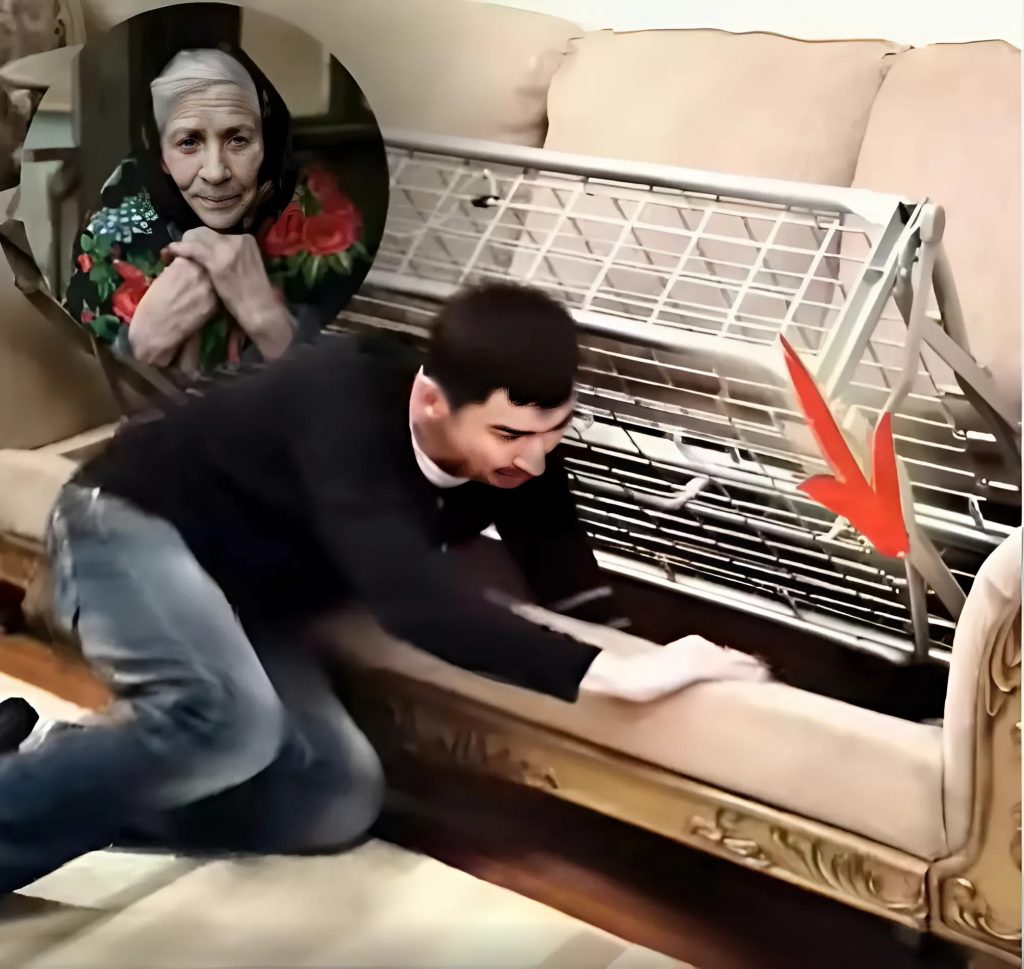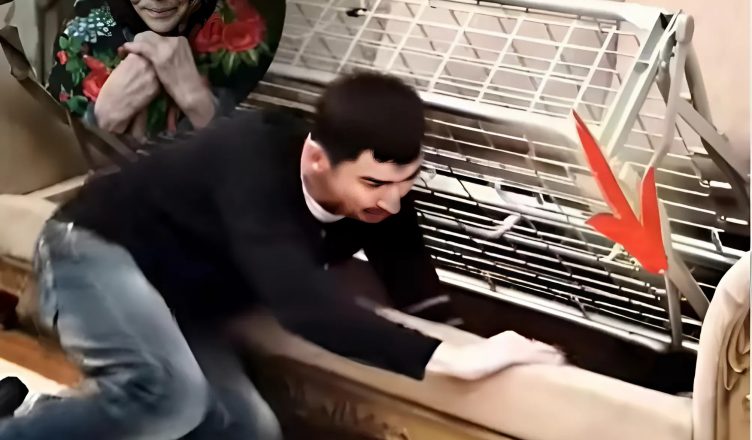When my grandmother passed away, a strange silence fell over my life. She had always been a quiet woman, never dramatic, but her presence was steady, calming, almost sacred. Even in her old age, her mind remained sharp, though she rarely spoke about her youth or the life she lived before I was born. After the funeral, our family began the difficult task of emptying her apartment. It was a small, meticulously organized flat in the historic district. Nothing was out of place, nothing unnecessary. But there was one object I was particularly attached to: the old olive green sofa in the living room.
That sofa had been her throne for decades. I remembered spending countless hours next to her as a child, listening to her tell stories, eating cookies, watching the sunset cast golden hues across the worn velvet. So when my parents said I could take something from her home to remember her by, I didn’t hesitate. I wanted the sofa.
With the help of a friend, I loaded it into my car and brought it to my small apartment. It was heavier than I remembered. Once inside, I replaced my modern couch with that antique piece of memory. That very evening, I noticed something odd: one of the cushions was unusually firm. I assumed the stuffing had just shifted with time. But curiosity got the better of me the next day, and I decided to open it up and take a look.
I carefully loosened the old seams, pulled away the yellowed padding, and there—between the layers of cotton and fabric—I found something that made my blood run cold. An envelope. Dusty, dirty, but sealed tightly. Inside were black-and-white photographs, letters written in a neat, determined hand, and—wrapped in a wool scarf—a small revolver.

I sat on the floor, heart pounding, and began reading the letters. What they revealed was staggering. In the 1950s, my grandmother had a relationship with a man who, according to her words, was involved in shady dealings: illegal trade, underground gambling, and possibly worse. The letters described the gradual decay of their relationship, leading up to a specific night. The final letter was dated January 3rd, 1958, and it ended with a chilling line:
“I couldn’t let him hurt me or the child. I did what I had to do.”
The child. My mother?
I kept searching and eventually found an old diary. In it, she detailed the events of that night. The man had come to her home, drunk and furious. She confronted him. One shot. That was all it took. No one ever knew what happened. The body was never found. My grandmother had hidden the weapon, and with it, the memory of that night. She never spoke of it again.
Who was my grandmother, really? A victim? A survivor? Or something more complicated? There had never been a police report, no known investigation. Perhaps no one ever filed a missing persons report for that man. Perhaps no one cared enough to.
I sat there for hours, surrounded by the past—photos, pages, ghosts. I decided not to turn in the gun. It was rusted, useless, more symbolic than dangerous. Burying it felt like the only right thing to do. I know exactly where it lies now. As for the letters, I’ve kept them safe. Maybe one day I’ll share them with my mother. Maybe. If the moment ever feels right.
That night, I sat on the old sofa, unable to sleep. Every creak sounded like a whisper from the past. But deep in my heart, I understood something I never had before: my grandmother wasn’t just the sweet old woman I remembered. She had faced darkness, made impossible choices, and carried the weight of that secret her entire life. She wasn’t just my grandmother. She was a fighter. She was a survivor. And now, her truth had finally found the light.
